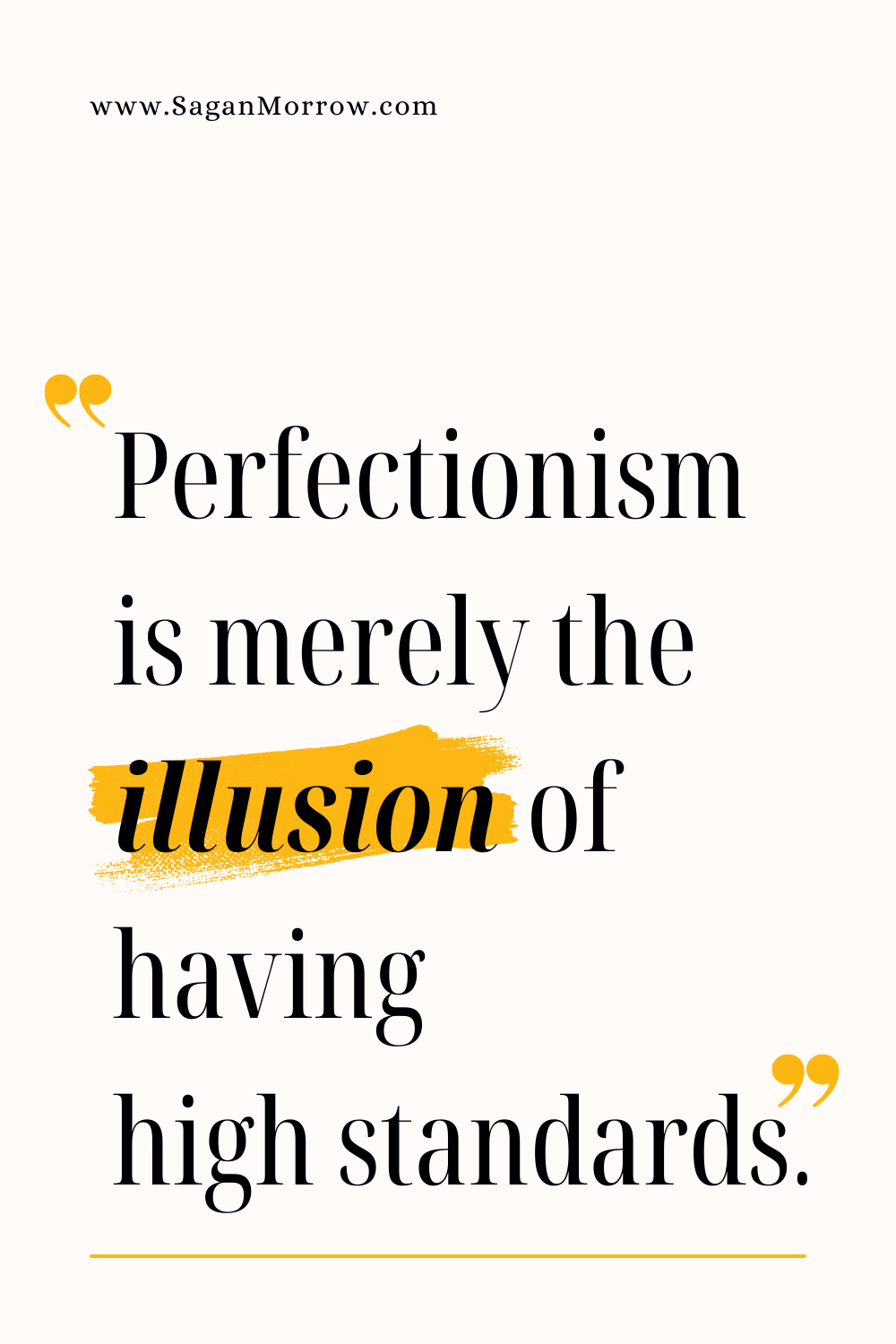What defines perfectionism? What are the differences between perfectionism vs high standards? Do you know what it really means to be a perfectionist? That is what we are going to explore in this video...
All videos in the How to Overcome Perfectionism series:
- The Truth about Perfectionism vs High Standards (that's this one!)
- Why Perfectionism Is NOT as Good as You Think
- Are You a Perfectionist? How to Know
- How to Overcome Perfectionism: Your 5-Step Guide
Perfectionism vs High Standards: What is perfectionism, and what defines perfectionism?
Perfectionism is about trying to get everything absolutely right, without any flaws or errors or mistakes, no matter how minute those might be.
Here's what you may not know: Perfectionism is NOT the same as having high standards. If you truly had high standards, then you would be much more focused on striving for betterment and improvement.
Perfectionism, on the other hand, is much more about fussing over the little details.
When you have high standards, you will likely ask a question like this: “What would make this even better than it already is? How can I increase the value and usefulness of this thing? What are some ways that I can challenge myself and take this to the next level?”
Those are the types of questions that you will be asking yourself when you have high standards. There is a curiosity and a pleasure, a genuine desire to be better.
Perfectionism, however, sounds more like this: “This isn't good enough yet. I can't make any mistakes. What will people think if I mess up? This thing isn't ready yet for anyone to see it.”
…And realistically, it's probably never going to be ready because you don't even know what “ready” means.
As you can see, with perfectionism, there's a lot more negative self talk. Perfectionism is about aiming to improve — but for the wrong reasons. It's not about the improvement itself. It's not about the betterment itself. Perfectionism is often about hiding behind the illusion of high standards so as to protect yourself.

What is the root cause of perfectionism?
Your root reasons, your root causes of perfectionism are unique to you. There is no one thing that always leads to perfectionism.
That being said, here are some of the things that may be lurking beneath your perfectionism:
- Fears of rejection or exclusion.
- Discomfort with visibility or putting yourself out there or leaving your comfort zone.
- Worrying about what other people think of you or feel about you.
- An over reliance on external validation.
- Misplaced beliefs about yourself and your role in society.
- Internalized glorification of the concept of perfectionism.
It could be a combo of several of those things for something else entirely.
As you can imagine, in order to fully identify your root causes of perfectionism, you need to understand yourself deeply. This is something that I teach inside my Activate Your Intuition masterclass, which I strongly recommend that you check out.
I am an internationally board certified Success and Life Coach and I specialize in personal fulfillment. Many of my clients struggle with perfectionism when they first come to me — that's one of the reasons why they come to me.
Activate Your Intuition: The Masterclass is a wonderful starting point to improve your relationship with yourself, so that you can get that foundation of understanding where your perfectionism is even coming from… and understanding that is absolutely essential to overcoming it!
Watch the on demand masterclass now:
By the way: This is a true masterclass. It is NOT a webinar!
You are going to get a ton from that masterclass: You're going to walk away with a whole new frame of mind and practical action steps. You will want to take notes!
Perfectionism and procrastination
As you can probably guess from what we've been going over in this video, perfectionism is often the mask of something deeper, it is a symptom of something else.
This is something that perfectionism and procrastination have in common: They are both symptoms of deeper issues. That is why trying to force yourself to stop being a perfectionist doesn't actually fix the root issue. It doesn't solve your real problems.
Treating the symptoms might work temporarily, but what is festering beneath will likely continue to escalate. You get caught in the perfectionism trap if you stay at that surface level and if you deal with perfectionism itself, rather than understanding what's beneath it.
That is why understanding your relationship with perfectionism is going to be so helpful for overcoming perfectionism.

Your next steps to overcome perfectionism…
Now that you understand what perfectionism is and what defines perfectionism (plus the differences between perfectionism vs high standards), in our upcoming videos in this How to Overcome Perfectionism video series, we are going to explore more deeply about why perfectionism can be such a big problem for so many people, plus the signs that you are a perfectionist and what you can do for how to overcome perfectionism.
I will see you in those videos! And in the meantime, don't forget to watch my free masterclass: It is a wonderful resource as you begin to untangle yourself from perfectionist tendencies and build a healthier relationship with yourself.
